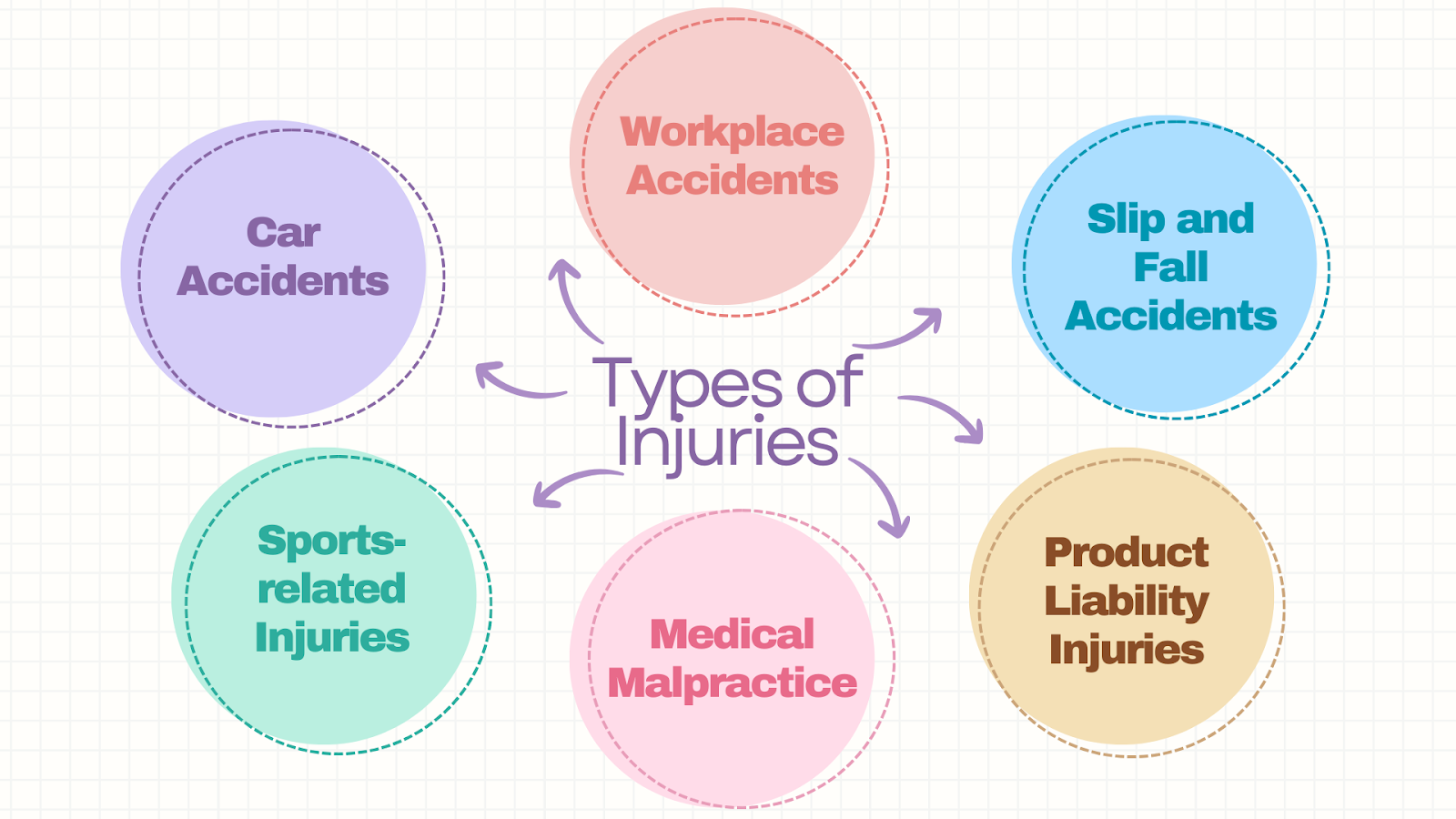The rise in traffic fatalities, from 3,980 in 2020 to 4,285 in 2021, underscores the risk of personal injuries that Californians face daily. Special compensatory damages are financial awards given to cover the losses victims suffer from these injuries. So, for anyone facing the aftermath of a personal injury, understanding special compensatory damages is a must.


Whether you have been involved in a car accident or workplace incident, we are here to help you decode special compensatory damages in California.
Read on to seek clear, actionable information to empower yourself and get the compensation you deserve.
- What are Special Compensatory Damages in California
- Injuries Eligible for Special Compensatory Damages
- Special Compensatory Damages in California: Types of Expenses
- Laws Governing Special Compensatory Damages California
- Factors Affecting Special Compensatory Damages Claims in California
- Special Compensatory Damages Claims: Common Mistakes to Avoid
What are Special Compensatory Damages in California
Special compensatory damages are financial awards granted to cover specific monetary losses resulting from an incident. The responsible party must compensate for losses, which can include medical bills, property repair costs, and other quantifiable expenses.
The primary goal of special compensatory damages is to restore the injured party to their financial position prior to the injury. This allows the injured individual to recover the expenses they wouldn’t have otherwise faced if not for the injury.
Quantifiable Nature of Special Compensatory Damages
Special compensatory damages are calculated based on tangible factors, making them quantifiable and objectively verifiable. Unlike general damages, which may involve subjective assessments, special compensatory damages rely on concrete evidence of financial losses suffered by the injured party. While general damages count for factors such as emotional distress, special compensatory claims are strictly monetary in nature.
Injuries Eligible for Special Compensatory Damages
Knowing the specific injuries that qualify for special compensatory damages can guide you in seeking appropriate compensation. These damages aim to cover a wide spectrum of both physical and psychological impacts. Below, we expand on the types of injuries that might warrant such claims.


- Car Accident Injuries: Includes everything from whiplash to severe head trauma.
- Workplace Accidents: Encompasses electrocutions, burns, and exposure to hazardous materials in addition to the previously mentioned injuries.
- Slip and Fall Accidents: Besides fractures and head injuries, can also include muscle strains and dislocations.
- Sports-Related Injuries: Injuries acquired during athletic activities or sporting events, requiring medical treatment or rehabilitation.
- Medical Malpractice: Now also covers poor aftercare or lack of follow-up, which can exacerbate or fail to prevent complications.
- Product Liability Injuries: Additionally considers injuries from consumer products that fail to warn users about potential risks.
Special Compensatory Damages in California: Types of Expenses
Special compensatory damages can be directly linked to the expense incurred because of the injury. Here are some monetary expenses that can be covered by special compensatory damages in California.
- Medical Bills: Injuries requiring hospital stays, surgeries, medication, physical therapy, and any ongoing medical treatments.
- Lost Wages: When injuries prevent you from working, special compensatory damages can cover the income you’ve lost during your recovery period. This includes not only your immediate lost wages but also lost earning capacity if your ability to work in the future is impacted.
- Property Damage: If the injury incident resulted in damage to your property, such as a vehicle in a car crash or personal belongings in a slip and fall accident, the cost of repairs or replacement falls under special compensatory damages.
- Rehabilitation Costs: Some injuries may require specialized rehabilitation beyond initial medical treatments, such as occupational therapy, speech therapy, or psychological counseling to recover fully.
- Travel Expenses: Costs incurred for traveling to and from medical appointments, including mileage, parking fees, and public transportation costs, can be compensated under special compensatory damages.
- Home Modification Costs: In cases of severe injuries that result in disabilities, your home may need modifications, such as ramps, stairlifts, or widened doorways, to accommodate mobility aids.
- Adaptive Devices and Equipment: The costs for purchasing adaptive devices like wheelchairs or crutches to accommodate a disability resulting from the injury.
- Legal and Attorney Fees: In some cases, the costs associated with hiring an attorney can be included in your compensation.
- Funeral Expenses: In the tragic event that an injury leads to death, special compensatory damages can include the costs of funeral and burial services.
If you have been injured and are unsure about the expenses you can claim, the Personal Injury Center is here to help. We can help connect you with expert personal injury attorneys to navigate your claim effectively. Reach out today to ensure you’re fully compensated for the monetary expenses stemming from your injury.
Laws Governing Special Compensatory Damages California


Understanding the legal landscape of special compensatory damages in California is vital for anyone looking to navigate their personal injury claim effectively. Here’s a breakdown of legal codes that govern these damages.
- California Civil Code Section 3281 – Right to Compensation: This establishes the foundational right to compensation for harm suffered due to another’s action or negligence. It underscores the principle that anyone who suffers a loss has the right to recover monetary damages.
- California Civil Code Section 3283 – Damages for Anticipated Harm: This provision allows for the recovery of damages anticipated in the future, which is crucial for long-term injuries where the full extent of losses may not be immediately apparent.
- California Civil Procedure 335.1 – Statute of Limitations for Personal Injury: This rule sets a two-year limit from the date of the injury to file a lawsuit. Understanding this timeline is essential to ensure you don’t miss your right to compensation.
- California Civil Code Section 1431.2 – Comparative Fault: Known as the “Pure Comparative Fault Rule,” this code allows for compensation even if the claimant shares some fault for their injuries. Compensation is adjusted based on the claimant’s percentage of fault. Under this, if you are responsible for 30% of the injury, your compensation will be reduced by 30%.
If you have faced a personal injury, remember that the Personal Injury Center is here to support you. Our network connects you with experienced personal injury attorneys in your region who understand California’s legal complexities. Reach out to us for expert guidance and seek the justice you deserve.
Factors Affecting Special Compensatory Damages Claims in California
When pursuing special compensatory damages in California, several factors can influence the outcome of your claim. Understanding these can help you set realistic expectations and prepare effectively.
- Proof of Expenses: The strength of your claim largely depends on the ability to provide concrete evidence of your expenses. Without receipts, bills, and detailed records, your claim might be reduced.
- Pre-existing Conditions: The defendant may argue that your injuries were related to pre-existing conditions rather than the incident in question. Clear medical documentation is essential to counter such claims.
- Insurance Policy Limits: The defendant’s insurance policy limits may also affect your compensation. If your damages exceed these limits, collecting the full amount might be challenging.
- Expert Testimonies: Expert witnesses, such as medical professionals or economic loss analysts, can significantly impact your claim. This is because they provide authoritative opinions on the nature and extent of your injuries and financial losses.
- Legislative Limitations: Certain types of damages in California are subject to legislative caps. For instance, California Civil Code Section 3333.2 limits non-economic damages in medical malpractice cases to $350,000.
- Nature and Extent of Injuries: The severity and long-term impact of your injuries significantly affect the amount of special compensatory damages you can claim. More severe injuries with extensive medical needs, long-term care requirements, or permanent disabilities typically result in higher compensation amounts.
Special Compensatory Damages Claims: Common Mistakes to Avoid


Navigating a special compensatory damages claim in California requires careful attention to detail and strategic decision-making. Here are some key mistakes to avoid.
- Overlooking the Impact of Social Media: Sharing details about your accident or recovery process on social media can undermine your claim. Insurance companies may use your posts to dispute the severity of your injuries. Keep your case details private and off social media platforms until your claim is resolved.
- Not Reviewing Your Medical Records for Errors: Failing to review your medical records for mistakes could lead to disputes about the nature and extent of your injuries. Request copies of all your medical records and go through them thoroughly. Report any discrepancies to your healthcare provider immediately.
- Ignoring Mental and Emotional Injuries: Not claiming for psychological impacts, such as anxiety or depression, can result in an undervalued claim. These are also compensable under special damages if they incur a monetary expense (e.g., therapy sessions). Document all visits to mental health professionals and keep a diary of how your injuries affect your daily life emotionally and mentally.
- Accepting the First Offer: Initial offers from insurance companies are often lower than what your claim might actually be worth. Accepting without negotiation can leave money on the table. Always consult with your attorney before accepting any offers. They can help negotiate a more favorable settlement.
- Accepting Settlements Without Understanding Tax Implications: Some portions of your settlement could be taxable. Accepting an offer without considering the tax implications may affect your financial planning. Consult with a tax advisor in addition to your attorney to fully understand how your settlement may impact your taxes.
- Failing to Consider the Full Scope of Future Expenses: Merely estimating future medical expenses without considering inflation, potential complications, or the cost of future caretakers can lead to insufficient compensation. Work with medical and financial experts to project realistic future expenses that factor in a comprehensive view of your long-term needs.
- Settling Claims While Still Undergoing Treatment: Finalizing your claim before reaching maximum medical improvement (MMI) can result in premature settlements. This leads to compensation that doesn’t fully cover your medical needs if your condition worsens. Wait until your doctor confirms you have reached MMI before settling your claim, ensuring all future medical expenses are accounted for.
Navigating a special compensatory damages claim can be a nuanced process. If you have been injured, remember, you don’t have to go through it alone. Our team at the Personal Injury Center is dedicated to providing you with the resources and support you need to make informed decisions. We promptly link you to top personal injury attorneys in your area. Reach out to us today and secure the compensation you rightfully deserve.
Key Takeaways
|



